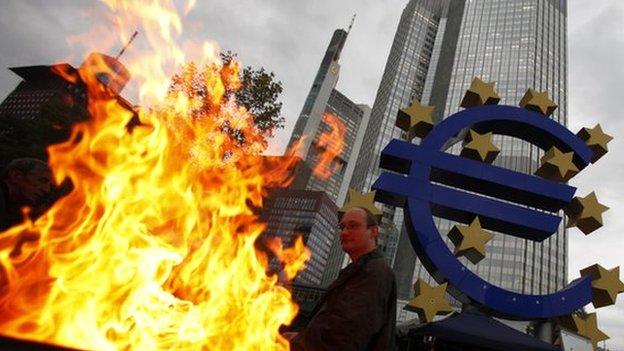ECB issues forward guidance on rates
- Published
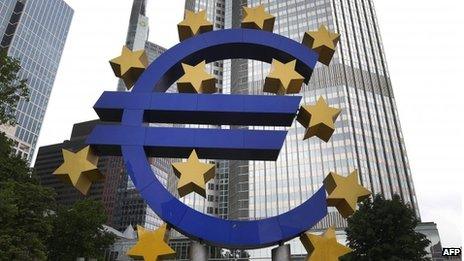
The ECB cut both its benchmark and deposit rates in June
European Central Bank (ECB) president Mario Draghi has said eurozone interest rates will stay at 0.15% for an "extended period" of time.
Mr Draghi was speaking after the ECB left rates on hold, a month after it cut them to help economic growth.
In June the bank cut its deposit rate from zero to -0.10% and its benchmark rate from 0.25% to 0.15%.
Mr Draghi added rate decisions would be taken every six weeks from January 2015 instead of monthly.
The ECB will also release minutes of the meetings of its General Council - the body which sets interest rates in the eurozone in the same way as the Bank of England's Monetary Policy Committee - for the first time in January.
It is the second time since Bank of England governor Mark Carney launched his policy of forward guidance last year that Mr Draghi has chosen to give guidance on eurozone interest rates himself.
The ECB president said interest rates will remain at their present level for an "extended period of time in view of the current outlook for inflation".
He added the ECB was "unanimous in its commitment" to using "unconventional instruments within its mandate".
June's cut in interest rates was aimed at encouraging banks to lend more to businesses and boost economic growth.
There had been concerns that the eurozone could slip into deflation, raising fears that consumers might spend even less because they would expect prices to fall in future months.
Figures on Monday showed inflation in the eurozone remained at 0.5% in June - within what Mr Draghi has called "the danger zone" below 1%.
Sluggish growth
Ahead of the ECB's decision, two separate surveys painted different pictures of eurozone economic activity.
Data from the Economic Cycle Research Institute (ECRI) suggested inflationary pressures in the eurozone reached a 25-month high in May.
The Eurozone Future Inflation Gauge, published by the ECRI, rose to 95.3 in May from 94.0 in April.
Lakshman Achuthan, the ECRI's chief operating officer, said the data suggested eurozone inflation was "likely to bottom out in the coming months".
But a survey from economic analysts Markit suggested eurozone businesses grew at their slowest pace for six months in June.
Business activity in France - the currency bloc's second largest economy - shrank at the fastest pace in four months, while growth in the eurozone's biggest economy, Germany, also slowed.
However, Chris Williamson, Markit's chief economist, said there were reasons for optimism despite data that on first glance made "grim reading".
He noted that Markit's survey found new orders rising at their fastest rate in three years in June, suggesting growth could accelerate in the second half of the year.
- Published1 July 2014
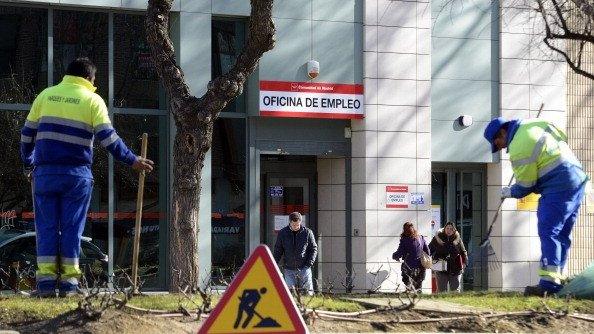
- Published30 June 2014
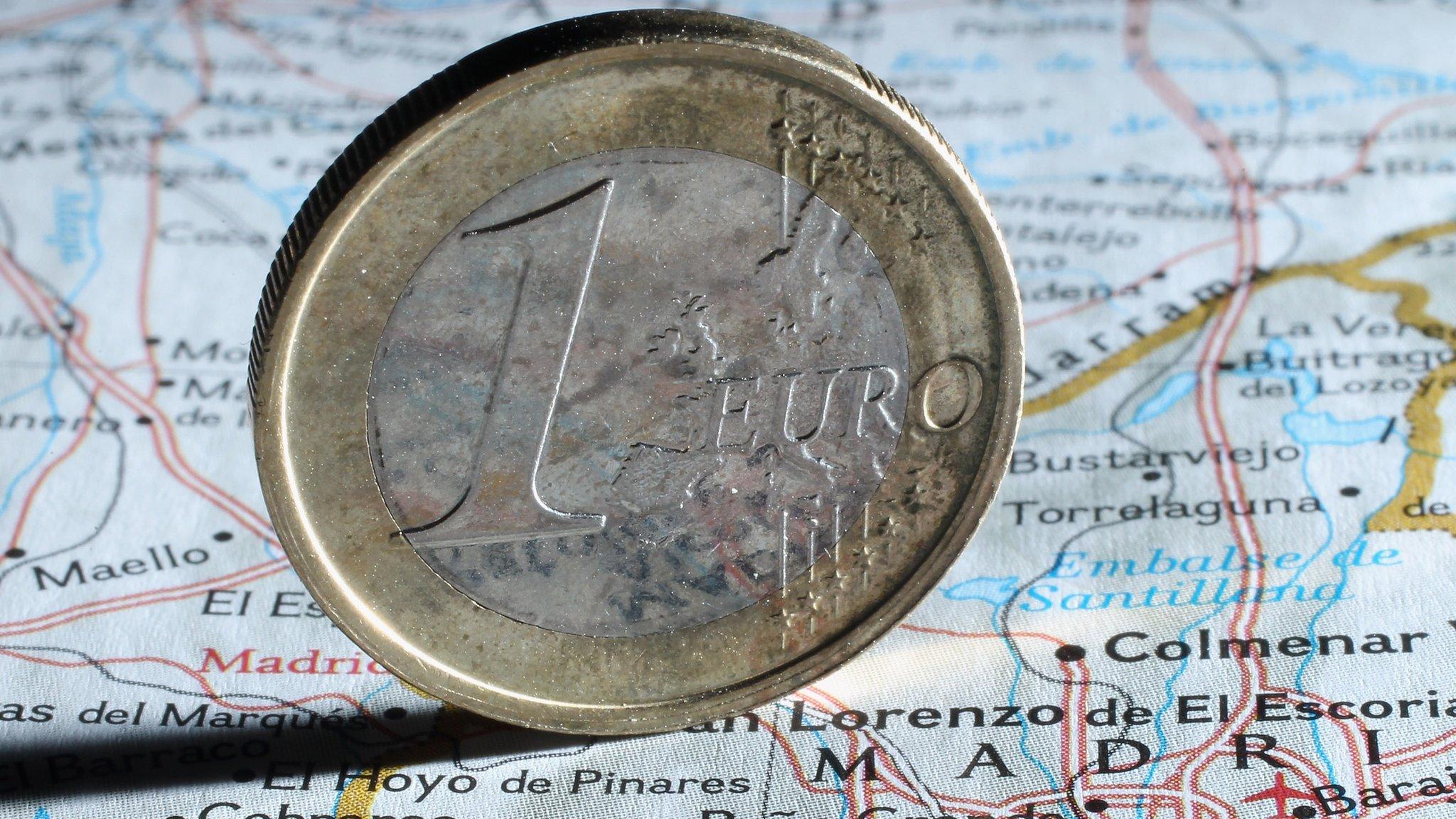
- Published23 June 2014
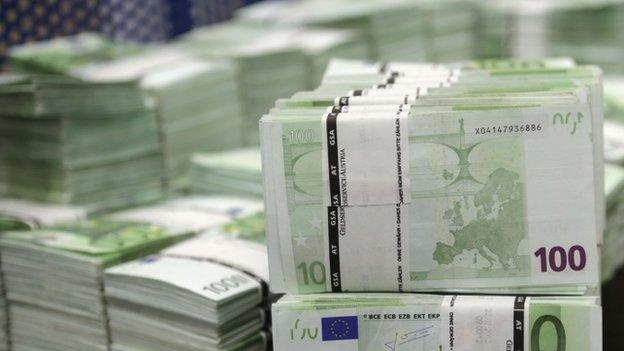
- Published19 June 2014
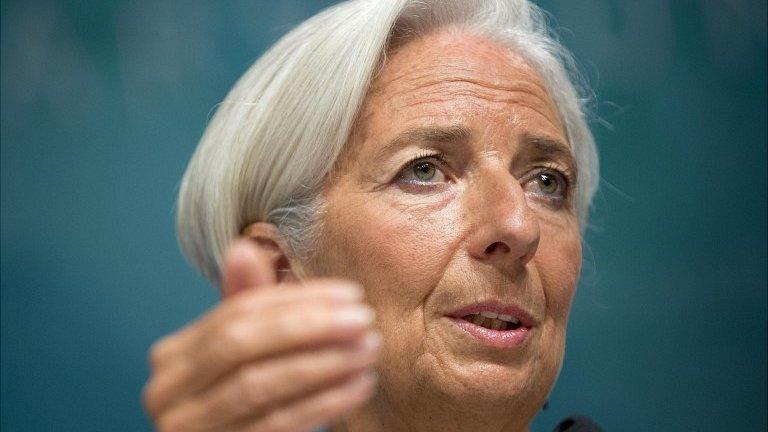
- Published29 January 2016

- Published5 June 2014
